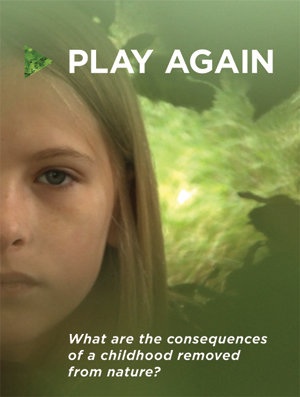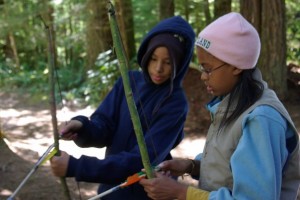18 Mar Adventures in Film: Play Again – The Joy Trip Project
 “The landscape of childhood has changed.” From the opening frames of Play Again, directed by Tonje Hessen Schei, the documentary makes it clear that the world we knew as children is fundamentally different than it is today. With a proliferation of technology that captivates both the time and attention of young people, a generation of humanity is emerging out of touch with the natural world. And as teenagers spend more and more time playing video games and surfing the web indoors the producers of this feature-length movie warn that as they grow to become adults they may be deprived of the very experiences that make us human.
“The landscape of childhood has changed.” From the opening frames of Play Again, directed by Tonje Hessen Schei, the documentary makes it clear that the world we knew as children is fundamentally different than it is today. With a proliferation of technology that captivates both the time and attention of young people, a generation of humanity is emerging out of touch with the natural world. And as teenagers spend more and more time playing video games and surfing the web indoors the producers of this feature-length movie warn that as they grow to become adults they may be deprived of the very experiences that make us human.
Getting kids outdoors is a cause embraced by many activist organizations across the United States. With rising rates of childhood obesity and increasing incidents of child perpetrated violence the back-to-nature movement of the last century is building momentum with a renewed sense of urgency. Play Again produced by Meg Merrill offers a comprehensive view into the critical issues that compel our youth to spend a majority of their time, almost 90 percent of each day, in front of data screens while putting at risk their long term growth and development.
“Young People today spend the least time outdoors than any generation in history,” says Ph.D. geneticist David Suzuki in the film. “And we revel in the fact that we’ve got all this information. The whole Encyclopedia Britannica is there, the Library of Congress, anything you want is there, except the real world.”
Not a cliché repetition of the dire consequences of too much screen-time, Play Again brings home the real stories of six teenagers experiencing nature for the first time. As children of apparent means with stable homes these are youths troubled only by the prospects of life unplugged. And as likely leaders of tomorrow this particular cross-section of kid culture is a good indicator of our challenges into the future. One young man in the film aspires to be a Navy Seal because he “looks up to characters in video games.”
Bouncing seamlessly between a Pacific Northwest campsite and commentary by noted academics Play Again makes a convincing argument for exposing kids to nature. The documentary also takes a look at the social pressures to keep the youth of America plugged in and tuned out to the environment. Some scientists agree that technology used to leverage the purchasing power of children through television, social networking web sites and video games is fueling the consumption of energy and natural resources that puts the whole planet at risk. Boston College sociology professor Juliet Schor draws the most damning conclusion in the film to suggest that kids are being exploited as an economic engine. “That’s a society whose values have gone very deeply awry and there’s a suicidal aspect to that,” she said. “We are destroying our ability to reproduce ourselves as a healthy society.”
Fortunately in Play Again the kids’ time playing outdoors exposes them to the virtues of a world that’s real. Avid gamers used to the regimented standards of mechanized order discover the organic benefits of direct interaction with both the environment and their new playmates. The inherent relationship with the land unfolds as the children learn to allow nature the time to reveal itself. And the film shows that just the awareness of an active outdoor alternative to screen time is enough to change how young people think about the world in which they live.
Play Again is in small venue distribution and is available for private and public screening. ~ JEM
[YouTube]IZ3J0szCGqk[/YouTube]
The Joy Trip Project film review is supported in part by sponsor Patagonia
![]()



You must be logged in to post a comment.